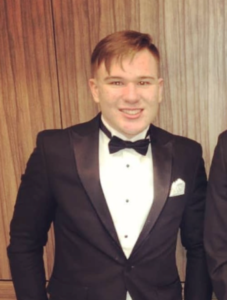On 9 July, the charity held its first virtual Friends of The Brilliant Club event, ‘Supporting young people’s education during the Covid-19 crisis’. CEO of the charity, Anne-Marie Canning MBE, was joined by president of Friends of The Brilliant Club, Michael Slavinsky, and two of our ambassadors, Josh and Hinal.
Josh and Hinal are currently studying at university and gave attendees great insight into what it is like to be a student during the pandemic. All of our speakers have written their thoughts on the event, and how it will influence how they approach this topic in the future.
Josh, studying medicine at Imperial College London:
It goes without saying that these past few months have exposed us all to previously unforeseen challenges that we have had to rapidly, bravely and smartly adapt to. The seemingly sudden enforcement of a national lockdown robbed us all of many wonderful educational, social and personal experiences that sadly we will not be able to enjoy. I myself was due to complete a research project in China this summer. However, while the situation seems sobering at first glance, I feel that lockdown has forced me to become more introspective and mindful of my own goals in life and how to address my weaknesses, making me more conscientious and driven than ever before.
I am grateful to the luxury of time that the lockdown has afforded in many ways. This is not to say that lockdown has all been plain-sailing, I have certainly endured many challenging moments, particularly with remote learning. Personally, I think remote learning removes any accountability that I had for my own learning and I initially found it difficult to motivate myself to complete the work set by teachers, especially when I could easily hide behind my screen on Zoom meetings! With time, I found myself more at home with taking charge of my own learning and deciding which resources are best for me to use, and in this regard, I feel a lot more capable at navigating through uncertain and challenging times in life.
While it is perfectly natural to feel worn out about all the uncertainty and strangeness of life in lockdown, I encourage you all to prioritise your well-being (I have found using social media to stay in touch with friends highly important), try and find out which learning resources work best for you (try and incorporate a variety) and be proud of the resilience and integrity that you have demonstrated by adjusting to a completely new way of life.
Hinal, studying biology at Queen Mary University of London:
 When lockdown began, I tried to make the most of my time and enjoy it despite the worries I had concerning the pandemic. I comfortably watched Netflix, polished my art skills and studied for my exams. The switch to remote learning meant I had to adjust my schedule to avoid sibling distractions but I also didn’t have to spend 1.5 hours just getting to my university (and back too!) because lectures were online and previous recordings made available for use.
When lockdown began, I tried to make the most of my time and enjoy it despite the worries I had concerning the pandemic. I comfortably watched Netflix, polished my art skills and studied for my exams. The switch to remote learning meant I had to adjust my schedule to avoid sibling distractions but I also didn’t have to spend 1.5 hours just getting to my university (and back too!) because lectures were online and previous recordings made available for use.
I kept track of societies and continued to build university friendships through social media interactions and many Zoom game nights!
Anne-Marie Canning MBE, CEO of The Brilliant Club:
Friends of the Brilliant Club is such a simple but effective idea. It provides a space for people to come together informally, knowing they share similar values. The virtual event had our highest attendance to date and we deliberately put together an agenda that centred on the voices of students.
Some may ask why it’s important to listen to young people. I believe when we listen to the experience of pupils and students, we can become much more effective in delivering education and programmes that help them to achieve their full potential.
It’s also fascinating. Josh told me that he doesn’t experience Zoom hangovers, something I’ve struggled with using video calling more heavily. He also spoke with real clarity about the advantages and challenges of virtual learning. On the one hand, the ability to mute yourself or turn off your video means that there is no need to be actively engaged with the teaching. On the other hand, those students who do choose to engage with online delivery will become more independent learners who are less reliant on teachers or lecturers. A dynamic Virtual Learning Environment is a necessity rather than a nice to have nowadays.
Both Josh and Hinal talked about the importance of building your community when at university, especially in these more isolated times. Student societies and groups can’t work like they usually do right now, but they still have a role to play in bringing like-minded people together to share their ideas.
Listening to our ambassadors speak and seeing the attendees’ questions flood in during the event was an eye-opening experience for anyone trying to navigate higher education during this crisis. There are still many unknowns for everyone; it would be foolish not to listen to the young people whose experience it is affecting.
Michael Slavinsky, teacher at Oasis Academy South Bank:
I’ve seen teachers go above and beyond to ensure our school community continues to receive an education during the lockdown period. Listening to Josh and Hinal, who are themselves only a few years ahead of my students, was an eye opener. It’s clear that many of the challenges we face in school exist at university-level too.
Five things I learned by listening to Hinal share her experiences:
1 thing I’ll do:
Find mentors for my students starting at university in September. I realised that starting at university this year in particular will bring additional difficulties: learning to study well online, motivating oneself to complete difficult work without face-to-face support, and a lack of social events to make new friends. For my students who are leaving our school to go to university, many the first in their family to do so, I want to provide mentors and support – perhaps with Brilliant Club alumni like Hinal and Josh – to guide them and empathise with the challenges they face.
If you’d like to join the Friends of The Brilliant Club network and receive details on our future events, click here.